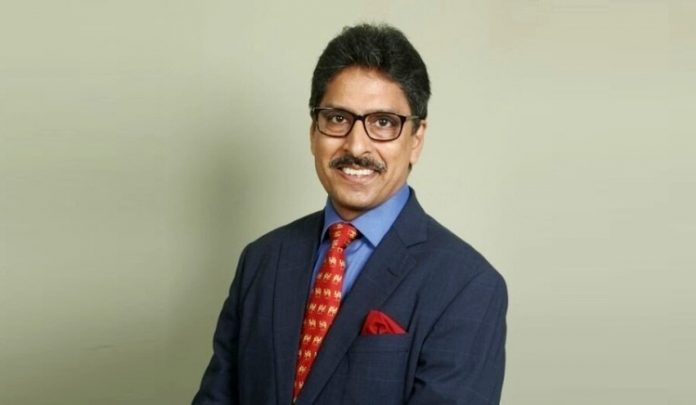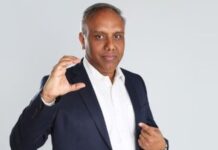
In an exclusive conversation with SightsIn Plus, we are privileged to have Prabir Jha, Founder & CEO of Prabir Jha People Advisory.
Mr. Jha is an alumnus of St. Stephen’s College, Delhi, and XLRI Jamshedpur. Combining an impeccable academic and professional record, in his stint as a civil servant, he handled the entire gamut of HR & IR issues of the Indian Ordnance Factories. On his switch to the corporate world after almost 10 years in the government, his initial HR years were with Thermax & Tech Mahindra. Thereafter, Prabir served on the executive team as the Global CHRO at two NYSE-listed Indian majors, Dr. Reddy’s and Tata Motors before moving to lead HR at another Fortune 500 giant as the Group CHRO of Reliance Industries Ltd. Prior to starting his own advisory firm, he was the President & Global Chief People Officer at the pharma major, Cipla.
Prabir has over the last many years have been featured in the “List of Most Admired HR Professionals in India” and has a number of awards to his credit, including a consistent Linkedin Power Profile. Among others, he is the recipient of the National Institute of Personnel Management (NIPM) Medal, the Reckitt & Colman Award and the Citibank Leaders Award at XLRI, for the “highest level of academic performance, competence, originality, creativity, communication skills and leadership” as also the Director’s Medal in the Civil Services Foundation Course. He was conferred the Asia HRD Award – 2012 for “outstanding contribution to the field of Human Resource Development” and “The Distinguished Alumni” Award at XLRI in 2016.
Q- You are an HR veteran, has been Global CHRO of fortune 500 companies for long and now a most popular HR advisor. How do you look at your Career Journey?
My career journey has been about constantly challenging myself!! Leaving the secure comforts of an assured civil services life was the first big risk I took. Learning new skills and understanding different constraints and possibilities across the various industries I worked through gave me an immense perspective on various businesses. Having had a very early exposure to leadership as a 23 year old in the Government of India, in hindsight, was a great plus for my career. To cut through the clutter and pick the key strategic issues, lead through inspiration, building great teams and trusting them helped me get the support of so many that in many ways built my career! And now in my recent gig avataar, I am again experimenting with something I have never done before. So my career has been a very asymmetrical career, but full of fun, challenges, learning and most of all, immense fulfilment.
Q- What is the role of HR in fulfilling the organizational goals and objectives?
The question is still not fully understood by either CEOs/ Boards or by HR. I personally feel HR has to educate and influence the stakeholders about its strategic imperatives. But too often we are ourselves consumed by the routine and the myths continue. From my experience, HR is business. Your route to value creation is, however, a little different. But by influencing and shaping the company’s strategy towards talent, with all its upstream and downstream aspects, you can make or break a company. Designing an appropriate culture conducive to your business imperatives, coaching leaders and managers to become excellent people managers, ensuring a strategic talent management practice one can mitigate enterprise risks. And by helping shape a powerful brand you help win the War of the Intangible!!
Q- What is Organizational Culture, and Its impact on employees’ performance?
Culture is the way an organization and its members think and behave with its stakeholder web. And while you can get into various academic definitions, it defines performance and experience with a powerful impact. I have said this so many times, there is no good or bad culture. It is either a strategically aligned culture or a misaligned one.
“There is no good or bad culture. It is either a strategically aligned culture or a misaligned one”
What worked earlier but is not helping us a culture that needs to be reviewed. People behave in the way they experience the culture. And every culture that gets created or changed sets the expectation of how employees work will behave and thus perform. Hard measures and soft measures both need to be the scaffolding of organizational culture and done strategically and deliberately will impact employee performance immensely!
Q- How to create a culture of high performance working?
A big question indeed! It starts with moving out of the acceptance of the syndrome of “satisfactory underperformance “. This is the biggest stumbling block. How do we stretch our thinking beyond incremental thinking? If we are able to believe in audacious goals, we will align our talent needs better, pick the right behaviors to celebrate, select the few appropriate meta metrics and build an incentive system that rewards breakthrough performance and even more importantly the cultural asks of a truly high performance ask. Sounds easy ?? It is tough and needs a major rewiring. Not everyone has the guts to be disruptive and the spiral of average performance thus persists.
To sustain and institutionalize such a performance culture, the messaging of expectations of performance and behavior has to be consistent across levels and functions. Very often this gets lost in translation. Celebrating examples of the new performance culture is key in terms of talent decisions, rewards, and recognition. Likewise, repudiation of any historical practices that contradict the new performance culture demands must be sharp and visible. And in some situations, even certain exit decisions must happen to signal unequivocally what is acceptable in the new reality.
Q- What is employee empowerment to you and how to empower employees at work?
Create a culture of trust and have people with the right skills and attitude. We often get both wrongs! But if we have the right way, you have to empower them and not micromanage. Most managers just cannot get away from meddling with the tactics. Allow them a few mistakes and together learn from it rather than keep checking on them over their shoulders. You will destroy the future even if you survive today! Also, many employees wait for empowerment to be given. Few give it. My personal experience has been that you assume it, you take it. And you will be surprised no one stops you. This has been a bogey for too long. If your employees can or assume empowerment, you are part of the problem but they too are an equal part of it.
Employee empowerment this is a two-way street. Start even with things small but those that are powerful symbols. In one company where I was the CHRO we moved almost 25 policies to self-approval! Some of it is unimaginable in most companies even today. But when we did it, the data suggested there were actually no risks beyond the naysaying managers who thought their power was going away. Likewise, coaching managers to insist on employees coming with solutions rather than passing up a problem is a huge change management intervention but truly worth it.
Q- What matters more to you, performance or culture fit?
It is never an “either”, “or”. This is a popular but misplaced belief. Culture is not just nice and soft. It is a strategic choice to enhance performance. No culture is fit if it does not support sustainable performance. The trick is to do a clinical and honest dissection of present and desired culture on your industry and context. And you make surgical changes if needed. I have heard it for too long a weak alibi: that is not my culture!!! No culture should be static. You will lose your edge then.
“It is never an “either”, “or”. This is a popular but misplaced belief”
I am absolutely certain that these historical blinders on seeing the two as separate elements must end. Culture seems fuzzy to most leaders who are more comfortable with clear mathematical formulae. But without the appropriate culture, performance will plateau and worse decline. What dimensions of culture that become relevant and impactful in the changing context of performance then become strategic choices. And I expect CHROs to hold that accountability and influence, other leaders, to appreciate the linkages better.
Q- How to recruit for cultural fit?
Be clear about what behaviours do you want for performance to be better? Use that as a template beyond a plug and play skill set, which is how most hiring happens in most places. Unless you hire right, you will never change the culture and you will never change your performance orbit. Having said that, I am not the one for total fit! You must hire for “culture plus”… who will challenge the culture, who bring bio-diversity in your gene pool, who think different… this itself must be part of your culture strategy.
Once you are clear about your mix of “culture fit” and “culture plus” at various levels, you will change the way you interview candidates. What one has done will give way to more of “how” one did it. Behavioural interviewing will need to be a wider practiced skill. Psychometrics could offer useful probes to interviewers. Group interviews across peers and reports may be a useful data point but not always the clincher.
Q- If you recruit for ‘cultural fit’ & ask teams to provide candidate feedback – can you really be inclusive?
Inclusive is not about conformance; it is about acceptance. This is where most HR leaders get it wrong. Candidates get judged just because they are different from us. And we screw up right there. Even if the feedback is not supportive of affinity, it should not ipso facto be deemed as non-inclusive…
Q- How do the economy and political factors weigh into HR strategies?
HR has to be effective in an operating context. Socio-political and economic realities shape the business and impact the talent market. The regulations help or deny optimum solutioning. You can influence a reshape but till then you have to operate within those limits. However, creative HR options always can be found within these constraints, if we just think more laterally than what we typically do.
Q- What is your career advice to new HR professionals?
Be courageous. I don’t think much of HR leadership has shown enough courage to challenge, question and ideate. You cannot be relevant in the new world by just being an order implementor. You have to stick your neck out. You have to look beyond your survival. You will then think different. And influence better. HR is an influence game. You must master it. And finally, you must make yourself a business leader, not just a function leader. You don’t need to equally proficient in every function but you should know your business well enough to know which HR levers will intensify value enhancement or reduce value erosion.
Thank you, Prabir!








